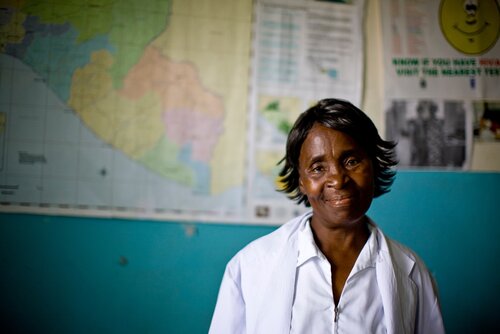UHC2030 hosted its annual UHC Day parliamentarian town hall to...
30 March 2017
30-31 March, Geneva, Switzerland

The UHC2030 working group on Sustainability, Transition from Aid and Health Systems Strengthening held its first face-to-face meeting on 30-31 March 2016 in Geneva, Switzerland.
Why a ‘Transition’ working group?
All low- and middle-income countries face a number of critical pressures on their health systems. Some of these are particularly salient for countries that are currently or will soon be “transitioning” to much lower levels of external financial support.
A common guiding principle is to maintain or even increase effective coverage for priority health services, including those currently supported with external funds.
This does however not mean simply channelling government revenues to pay for a previously donor-funded program. Rather, transition provides an opportunity for countries to assess how governance, financing and service delivery are configured to ensure the sustainability of effective coverage for priority interventions.
Hence, health system strengthening (HSS) is at the core of the response to transition if progress towards UHC is to be sustained. The focus of work for this new working group will be to build consensus around core issues and objectives in response to the transition from aid, develop guidance and principles for good practice and explore the types of reforms and investments needed to support an effective transition process. This initial consultative meeting will identify the specific actions that are going to be useful to take the work forward and support collective efforts in this area. More information will follow soon.
Please see here for the meeting agenda, the participant list and below, the presentations made throughout the meeting.
Presentations
Findings from a rapid background mapping• Veronica Walford, UHC2030 consultant and Clare Dickinson, UHC2030 consultantInstitutions for transition towards UHC
• Agnes Soucat: Director, Health Systems Governance and Finance, WHOSustainability and Transition - Why? How? When? The Estonian case
• Triin Habicht, Senior Adviser to the Ministry of Health, EstoniaMoving towards UHC, the role of external finance
• Aquina Thulare, Technical Specialist, Health Economics, National Health Insurance, South Africa
• Nellie Malefetse, Director of International Relations for Health, South AfricaTransitioning of externally funded health programmes: Indonesia
• Pungkas Bahjuri Ali, Director of Community Health and Nutrition, Ministry of National Planning, Indonesia
Leadership, Multiple Assessments, Fragmentation in Health Sector Planning
• Regina Ombam, Deputy Director, HIV Investments, National Aids Council, Kenya
Perspectives on sustainability and transition from aid at country level
• Bruno Rivalan, Director, Action Santé Mondiale/Global Health Advocates
• Camilo Cid, Advisor, Health Economics & Financing, PAHO /WHO Regional Office for the AmericasPartner perspectives
Support to transition from ODA at country level, what needs to change?
• Nertila Tavanxhi, Technical Adviser, Evaluation & Economics, UNAIDSRaising revenues while managing expenditure growth: a balancing act for sustainability and transition
• Joe Kutzin, Health Financing Coordinator, WHOChallenges in transitioning from external sources of financing
• Ajay Tandon, Lead Economist, World BankCross Programmatic Inefficiencies breaking the silos
• Susan Sparkes, WHO, Health Financing PolicyTowards access 2030: WHO medicines and health products programme Strategic Framework 2016-2030
• Gilles Forte, WHO, Essential Health Products and Medicines(Re-) Building an enabling legal environment for UHC
• David Clarke WHO legal frameworks and procurementUHC2030 core team recap
• Objectives of IHP for UHC2030
• Scope of the STWG
More UHC2030 News
A global health financing emergency threatens progress toward...
UHC2030 at HSR2024: Advancing equity and inclusion in health systems through civil society knowledge
UHC2030, in collaboration with the SUPPORT-SYSTEMS research...
